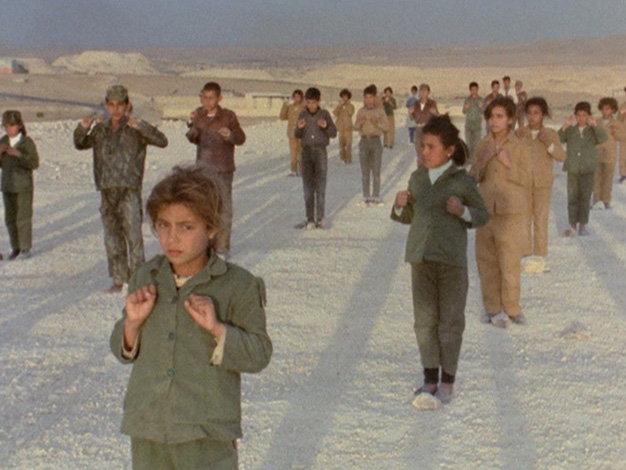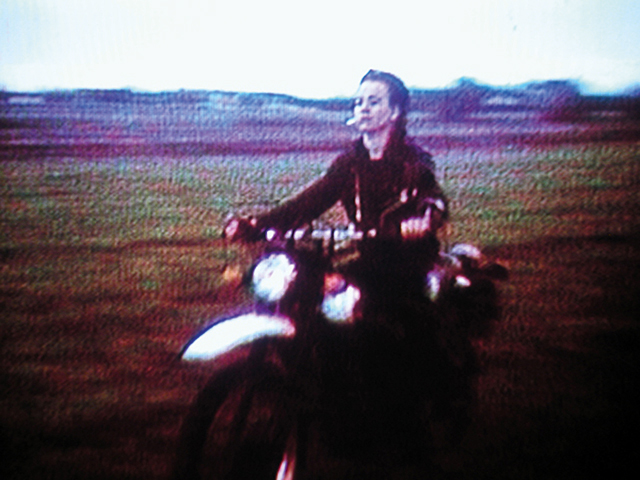Militant cinema: from Third Worldism to Neoliberal Sensible Politics
Irmgard Emmelhainz is an independent writer and researcher based in Mexico City. In 2012, she published a collection of essays about art, culture, cinema and geopolitics: Alotropías en la trinchera evanescente: estética y geopolítica en la era de la guerra total (BUAP). Her work about cinema, the Palestine Question, art, culture and neoliberalism has been translated to French, English, Arabic, Turkish, Hebrew and Serbian. She is currently co-editing an issue dedicated to Mexico City of Scapegoat Journal, and teaching a course at the Esmeralda National School of Engraving and Painting in Mexico City.
Jean-Luc Godard’s Ici et ailleurs (1969-1974) as well as Chris Marker’s Le fond de l’air est rouge (1977) crystallize the histories of militant engagement and political filmmaking in the 1960s, a time in which Marxism was a vehicle for cultural as well as actual revolution here and elsewhere. From both films, lessons about this era of militantism can be drawn. Moreover, they announce a turn in the 1970s and 1980s toward minority politics (tied to de-colonization struggles) and humanitarization –which implies an ethical, as opposed to political relationship to the elsewhere, as well as the utopia of globalization. Bearing this in mind, Irmgard Emmelhainz will discuss the changes in the meaning of ‘politicization’ and political work from the 1960s from what is known today as ‘Sensible Politics’: a form of politicization active at the level of encoding unstable political acts in medial forms. Taking up Jean-Luc Godard’s plea for texts and poetry (inspired by Aristotle’s and Hannah Arendt’s understanding of political action as speech), in his film Notre musique, she will argue that most of the current politicized images are compensatory devices to the ravages caused by neoliberal reforms implemented worldwide in the past two decades.

